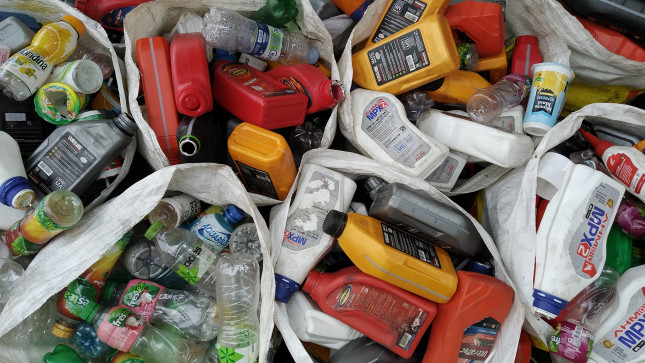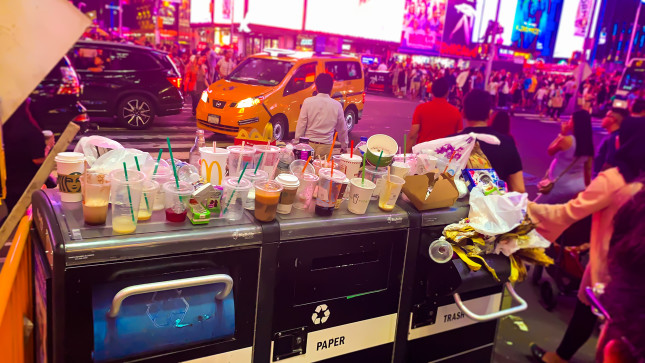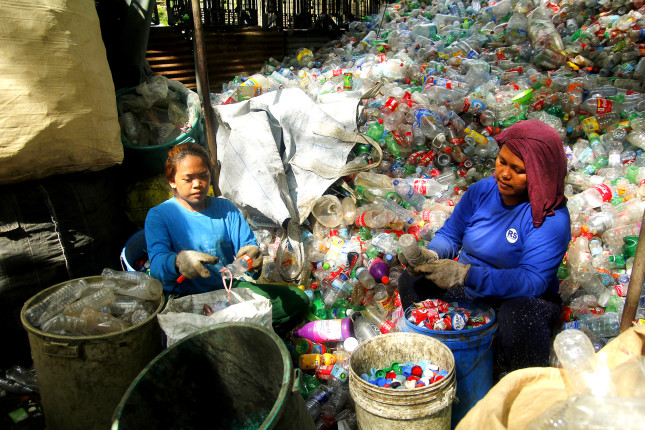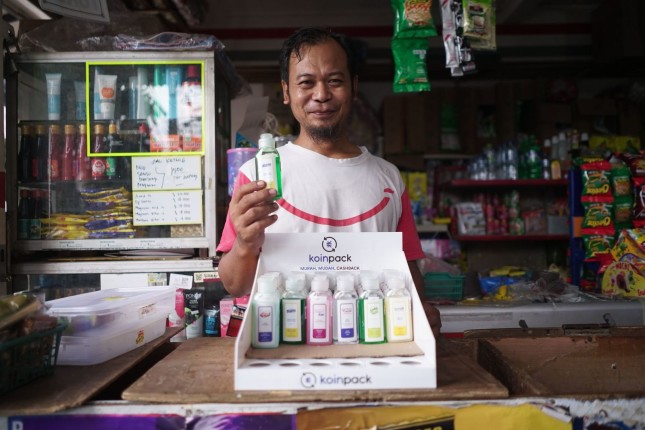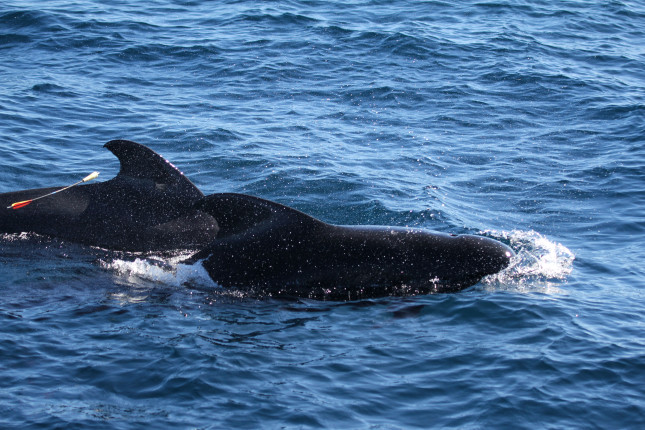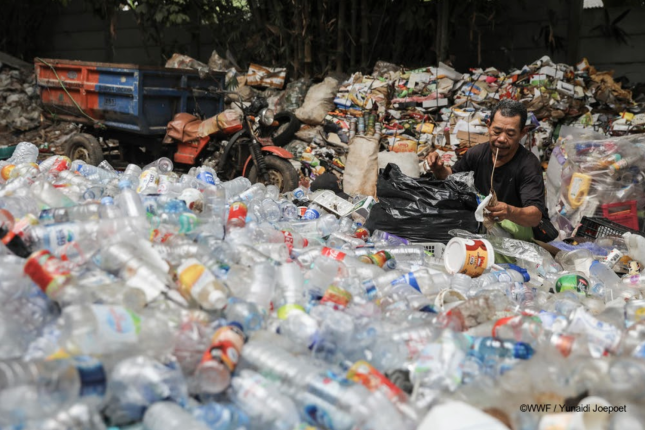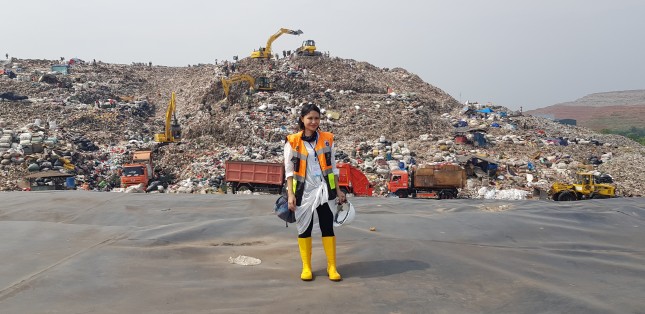-
Aquaculture is Fishing to Gut Plastic Waste—In The United States and China
›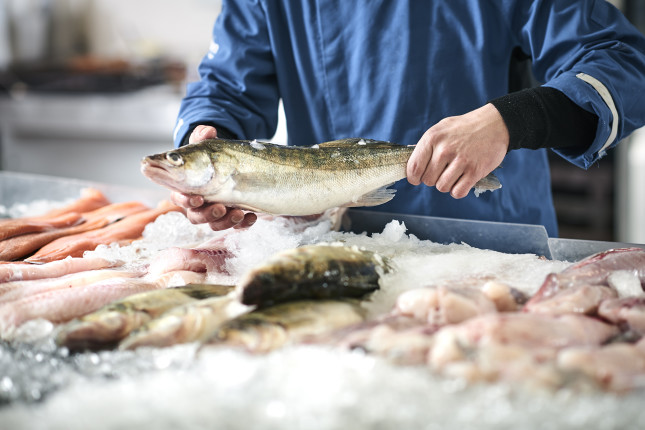
In May 2009, I was traveling with researchers from the Shandong Academy of Agricultural Sciences to learn about rural water pollution. One of them realized it was Mother’s Day and decided to treat the 3 mothers in the group to a fishing trip. We soon pulled into a farm with rows of large concrete ponds filled with fish. This was my first introduction to the world’s largest aquaculture industry, where fish are farmed in ponds, reservoirs, and even rice paddies. China produces 50 million tons of seafood annually, far eclipsing the 0.5 million tons farmed in the United States.
-
Building an On-ramp for Catalytic Capital to Reduce Plastic Leakage: Q&A with Circulate Capital’s April Crow
›Back in 2005, as a part of the Coca-Cola Company Environmental Team, April Crow was a pioneer working on the concept of sustainable packaging. In the mid-2000s, despite stories on the great pacific garbage patch, ocean plastic waste was not high on policy or corporate agendas. April believed this was due to a lack of scientific data on the scale and threat of plastic waste. To fill this gap, April’s team partnered with Ocean Conservancy to convene leading scientists to help fill these knowledge gaps. Their research found the majority of marine plastic pollution stemmed from five Asian countries that lacked waste management infrastructure, which if fully in place, could reduce leakage by 45 percent. This insight raised a challenging question—how can companies and aid agencies bring funding to these markets to facilitate better infrastructure and prevent plastic leakage?
-
Championing Ecological Health and Environmental Justice in Plastic Action: Q&A with Judith Enck, Founder of Beyond Plastics
›“There is one thing I think about a lot: how do you get people active on plastic waste? How do you structure having impact?”
Judith Enck discovered her interest in environmental activism when she interned in college for the New York Public Interest Research Group (NYPIRG) and was asked to lobby for the Returnable Container Act (commonly referred to as the Bottle Bill), which had stalled for 10 years. The difficulty she faced in lobbying for this relatively simple bill motivated her to return for a second internship. After graduation, she abandoned plans for social work or law school to return to environmental advocacy and quickly became the executive director of Environmental Advocates NY. The bill eventually became a New York State law in 1982 and has since prevented the unnecessary export or landfilling of billions of plastic bottles. Judith learned important lessons from that victory and has been making her mark on America’s waste policy ever since.
-
Building Local Capacity for Zero-Waste in the Philippines: Q&A with Break Free From Plastic’s Former Asia-Pacific Coordinator Beau Baconguis
›
Large pollution can come in small packages. This is the case with the small plastic pouches, called sachets, that constitute a major source of the plastic waste crisis plaguing the Philippines, a country ranked third in the world for ocean plastic leakage. Filipino consumers throw away a staggering 163 million of these difficult-to-recycle plastic packets each day, which adds up to about 60 billion a year, enough to carpet 130,000 soccer fields.
-
The Circular Business Models Behind Indonesia’s Reuse Revolution
›China Environment Forum // Guest Contributor // March 4, 2021 // By Dieuwertje Nelissen & Tauhid PandjiWaste banks are a cornerstone of Indonesia’s waste reduction efforts. Seeking to prevent plastic waste from getting burned or choking waterways, communities establish these places for people to bring plastic waste to be recycled. It only took a few months to see tangible results at the Bumi Daya Bersih waste bank in West Jakarta. In addition to collecting and sorting waste, the waste bank community is also contributing to waste prevention. A number of regular waste bank customers have started bringing empty plastic packaging that’s not intended to be recycled (yet) but instead refilled with high-quality home and body care products. -
The Over-whale-ming Plastic Problem
›Plastic pollution has infiltrated every ecosystem in every ocean on the planet, but perhaps the most iconic organisms impacted are the whales. The problem is monumental. For example, consider the blue whale. Our most optimistic estimates put the global blue whale population size at about 25,000 individuals (down 89 percent since before commercial whaling began in 1911). Based on recent estimates, an amount of plastic waste equivalent to about 3.5 times the weight of the entire blue whale population is put into the ocean every year. That staggering figure alone is enough to make one feel, well, blue, but the devastating impact is underscored by the now-familiar images of deceased whales—their guts bursting with plastic bags or completely entangled in derelict or discarded plastic fishing gear.
-
Waste Not Want Not: Malaysia Moves to Become a Leader in Tackling Plastic Waste
›After China issued its plastic waste import ban in January 2018, global plastic waste shipments were quickly rerouted to Southeast Asia, with Malaysia as a top recipient. Like bamboo sprouts after the rain, illegal plastic recycling facilities quickly popped up in Malaysia. To stay under the radar, some operators set up recycling plants and waste dumpsites in oil palm plantations.
-
Aiming for A World Where Everything Is Circular: Q&A with Indonesia Plastic Bag Diet Cofounder Tiza Mafira
›“What bothers me is that people tend to look at these rivers and these polluted beaches and think ‘somebody needs to clean it up’—that’s just completely wrong. Because not only is it almost impossible and inefficient, but it’s really not the solution. The solution is prevention,” says Tiza Mafira in the film, Story of Plastic, as she takes a boat trip down the polluted Ci Liwung River that flows through Indonesia’s capital city, Jakarta.
Showing posts from category plastic.


